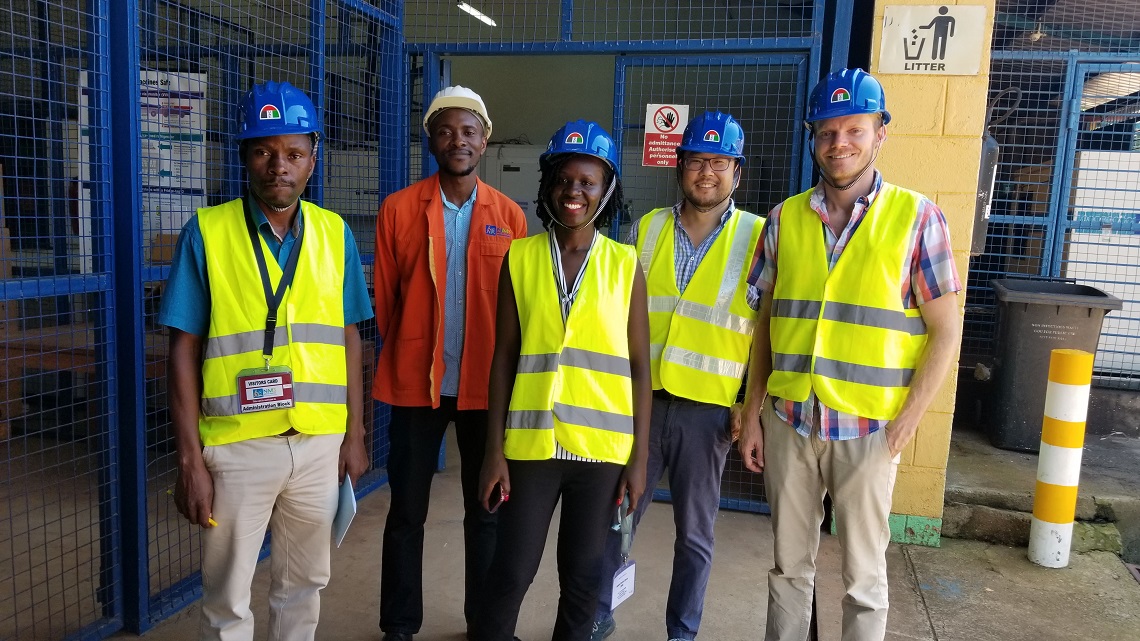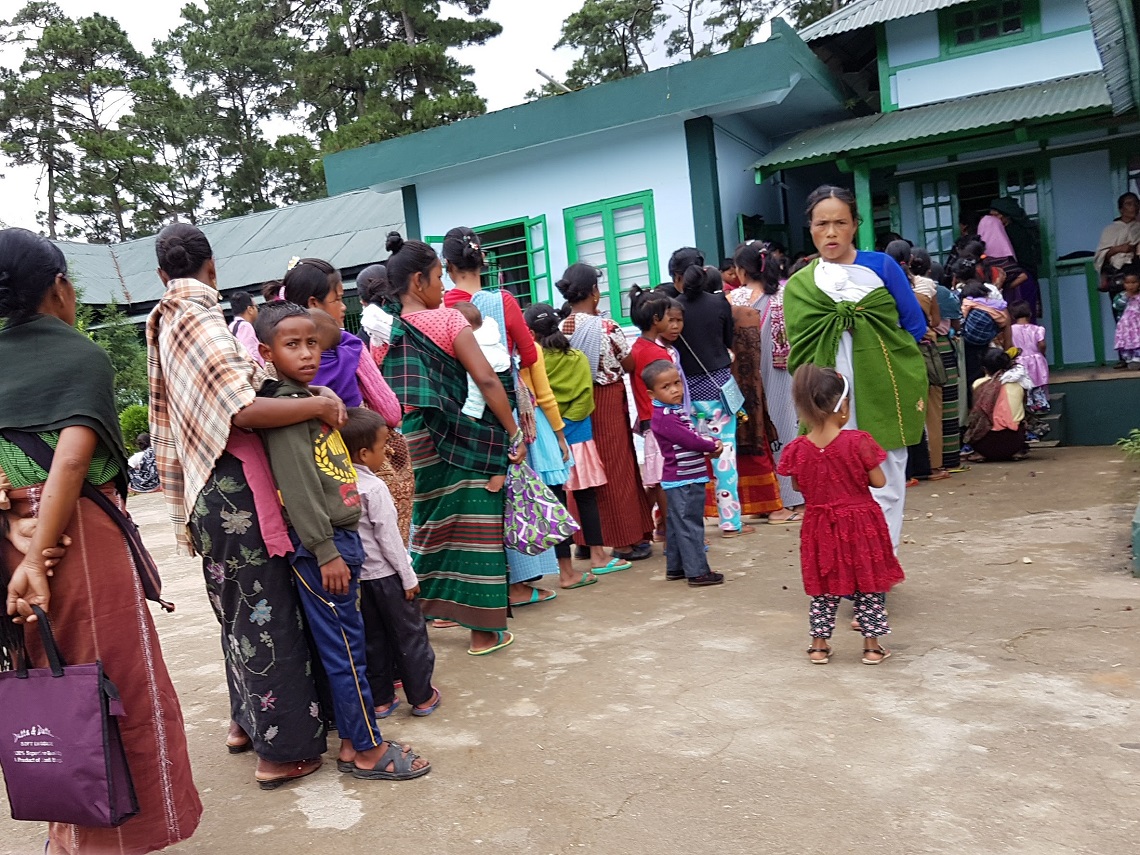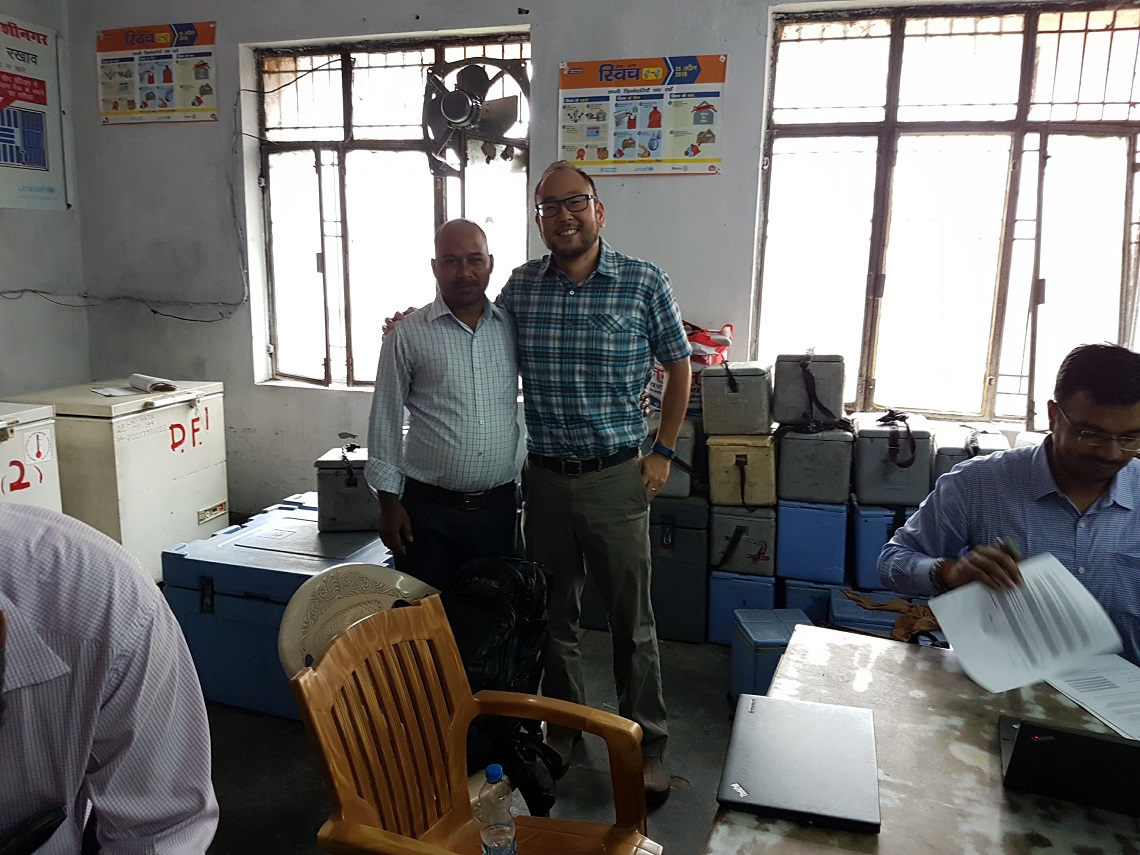King of the Cold Chain
Matt Morio keeps the temperamental supply chain for vaccines flowing to the developing world
Many Americans are obsessed with COVID-19 vaccines and their promise to deliver us, at long last, from the physical, emotional and economic suffering of the past year-plus.
But it’s a global pandemic. And the only way to truly eradicate this deadly virus from our lives is to vaccinate the entire world.
That’s not an easy prospect. Beyond the small task of producing sufficient doses to protect 7.9 billion people is the titanic logistical challenge of delivering those doses—intact—to the many billions living in lesser-developed regions across the globe.
This is the domain of Matt Morio (MBA 2003), senior business analytics officer at PATH, the Seattle-based international health organization.
Morio specializes in supporting the “cold chain” for vaccination delivery to places lacking in infrastructure, healthcare facilities, transportation stability and dependable power sources.
This is a special conundrum for the emergent COVID vaccines, whose storage requirements range from basic refrigeration to ultra-deep freezing. So, he’s been laser-focused on consulting for global health organizations like the Gates Foundation, UNICEF, the World Health Organization and Gavi (the vaccine alliance of the world’s poorest nations), as they race to deliver vaccines to the ends of the earth.
“We try to figure out ways to deliver, no matter the circumstances,” says Morio. “And we provide guidance on what investment will be needed to get even a small portion of doses to these countries. It’s cool to help solve these problems.”
Learning to sell
Before his MBA studies at the Foster School of Business, Morio rode the dot-com boom as a business analyst for a financial services firm. He came to Foster to hone his finance and entrepreneurial skills, with aspirations to become a CFO one day. But first, he thought, a stint in sales would round out his skillset, and teach him to better communicate insights from the data.
This detour took him into the business of healthcare, and a decade-long series of sales and marketing roles at AmerisourceBergen, the pharmaceutical wholesaler for which he worked in business development, and Philips, where he led the marketing strategy for CT scanners.

When Philips restructured his department, Morio considered it a sign and a sabbatical: “I took some time to figure out, what do I want to do? What’s my passion? Where do I want to have an impact?”
He decided on healthcare—but at a global scale. After doing some consulting with PATH, he joined fulltime in 2015. “In public health, there are passionate experts in the field,” he says, “but they are not business people. It’s important to understand that the business side looks at this a little differently than the global health side, and the MBA really helped with this.”
PATH work
At PATH, Morio’s team consults vaccine funders and providers on innovations and new technologies—particularly in the cold chain of refrigeration and transportation—and models distribution plans to populations based on every potential situation and criteria.
The buzz term is ‘data for action.’ ... We’re working to empower frontline healthcare providers to use the data to make better decisions.”
“The buzz term,” he says, “is ‘data for action.’ A lot of the data is flowing up rather than flowing back down to the people making decisions on the ground. So we’re working to empower frontline healthcare providers to use the data to make better decisions.”
His team has modeled over 200 scenarios for distribution of COVID-19 vaccines, and is helping global health organizations discern and implement the most viable.
Frequent flier
Morio’s is not the usual analyst job. Plotting logistics in the developing world demands a more nuanced reading of the possible circumstances.
Until grounded by the pandemic, he traveled monthly on PATH business—with frequent stops in its field offices in India and Africa. Seeing the situation on the ground has been essential to modeling cold chains that hold up in even the worst of conditions—floods, online deserts, intermittent power grids—faced by local healthcare providers.
“Basic modeling is easy,” Morio says. “But there are challenges on the ground that you can’t always see from an office in Seattle. Maybe there isn’t reliable enough electricity to install a system, or the roads tend to wash out during the rainy season, or the internet is so weak that even the basic software systems need to have an offline mode.
“Seeing and experiencing the environments and challenges firsthand helps me do better work.”
Virtues of patience and prudence
It’s easy to get frustrated by the pace of vaccine distribution in the United States and the rest of the world’s most prosperous countries. Until recently, a glance at a global map of COVID-19 infections suggested that North America and Europe were suffering disproportionately from this pandemic while Africa and much of Asia (excepting India) appear to be faring much better.
While gaps in testing and reporting may explain some of this anomaly, Morio suggests it has more to do with the pragmatism of the people living in poorer regions.
They have endured numerous deadly epidemics in the recent past, and know the drill. They don’t tend to politicize preventive measures such as masking, and they don’t resist orders to social distance. And on top of this, he adds, they know they don’t have the luxury of a robust healthcare system to take care of them if they do fall ill.

“The need for vaccinations in the developing world is urgent,” Morio says. “The numbers may be lower there because people, as a community, have recognized how important it is to do the controls. Many African nations had only a handful of ventilators at the beginning of this pandemic. So, the lockdowns have been a lot more stringent, and the populations have cooperated. It’s a testament to people seeing the need to protect each other and take measures seriously so they can get past this.”
Profession with purpose
Morio and his team are determined to remove as much friction as possible from the flow of vaccines into arms around the world, though he believes it will take years, not months, to reach anything approaching global herd immunity.
If anything, the COVID-19 crisis has reaffirmed his choice in career. “In all my years with PATH, I’ve never had a morning when I didn’t want to go to work,” he says. “The work is very meaningful—especially with the cold chains for COVID. When you’ve traveled to remote villages in Africa and India and seen the dedication and care of mothers traveling long distances and waiting in line to get their children a vaccination or a health screening, you feel the importance of minimizing the challenges and stresses so providers can focus on delivering healthcare and not is my refrigerator working? Or is the road washed out? Things we take for granted.

“So, we’ve been working really hard to generate the best information we can to inform people and help them prepare for the vaccines rolling out. Now that they’re beginning to flow around the world, it’s very rewarding.”
He takes heart in the extraordinary patience and passion he has encountered in people with the fewest resources at their disposal, and believes we can all learn a lesson or two from them.
“We need to have patience,” he says. “Vaccines are not going to be an immediate fix, but there’s definitely hope. We’re seeing the resilience of individuals and communities and nations who are doing the best they can until vaccines arrive. The determination of people to get through this is really inspiring.”
